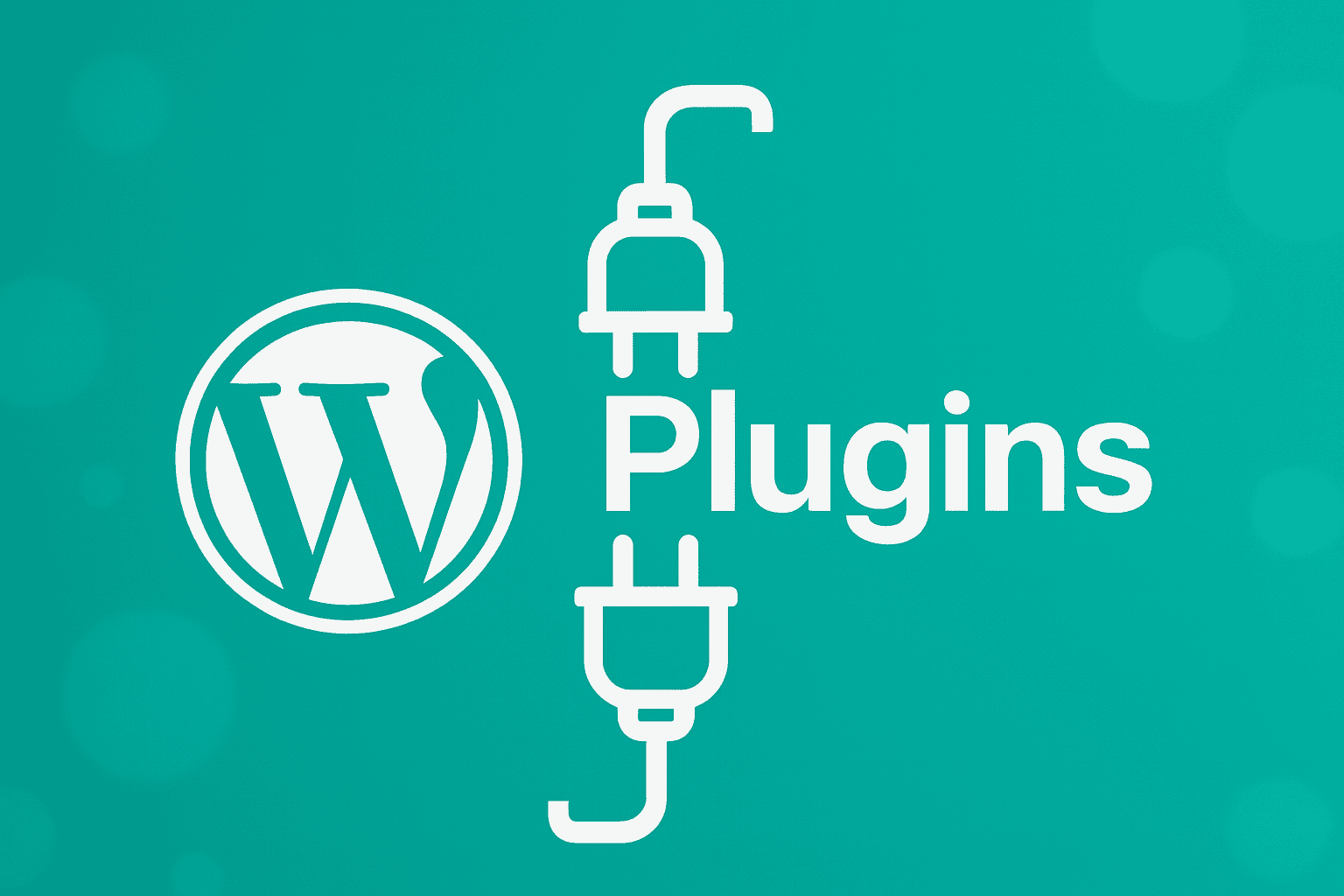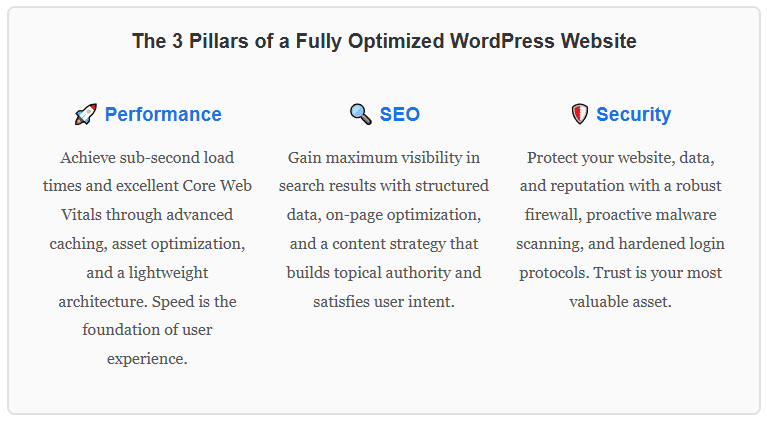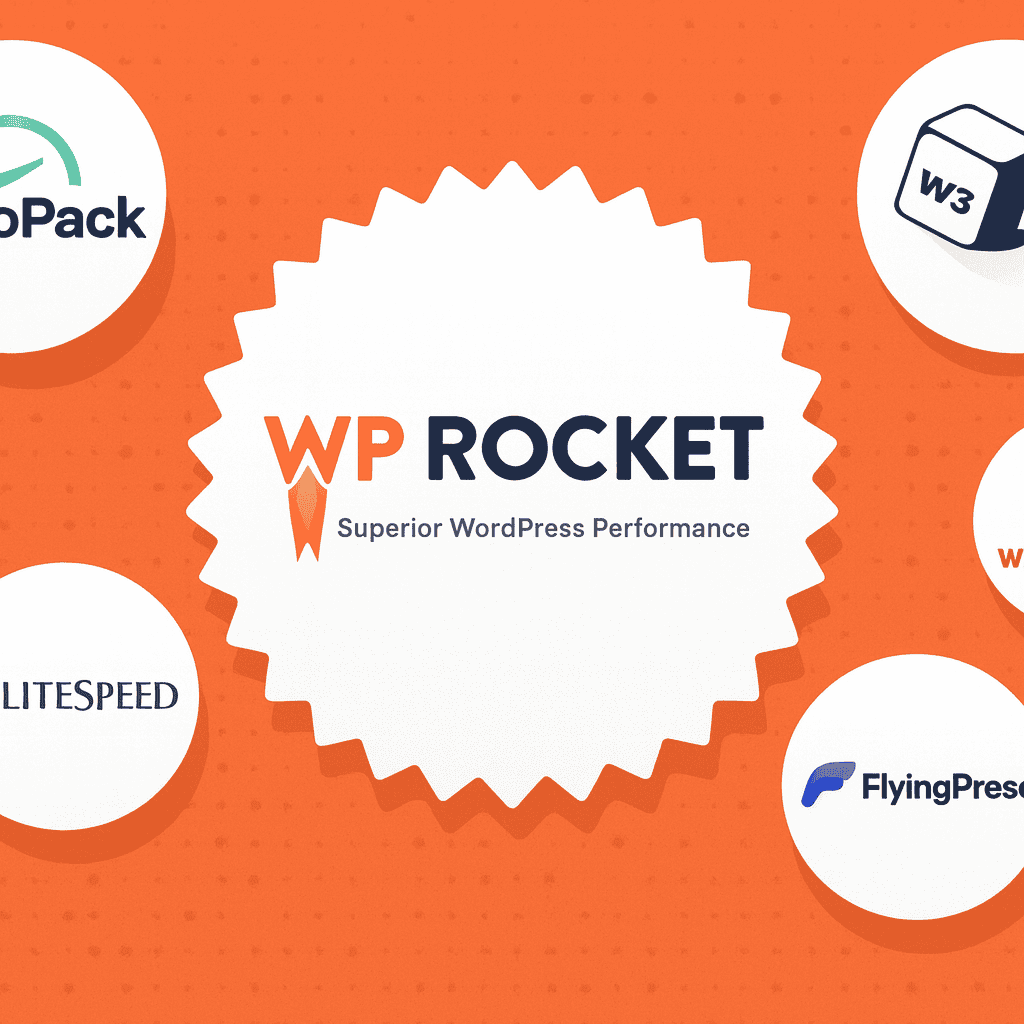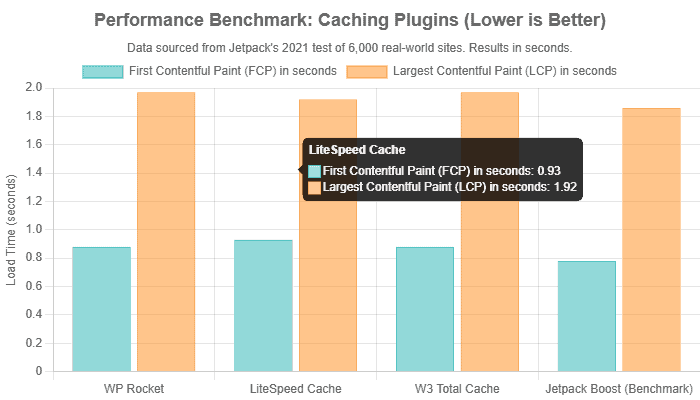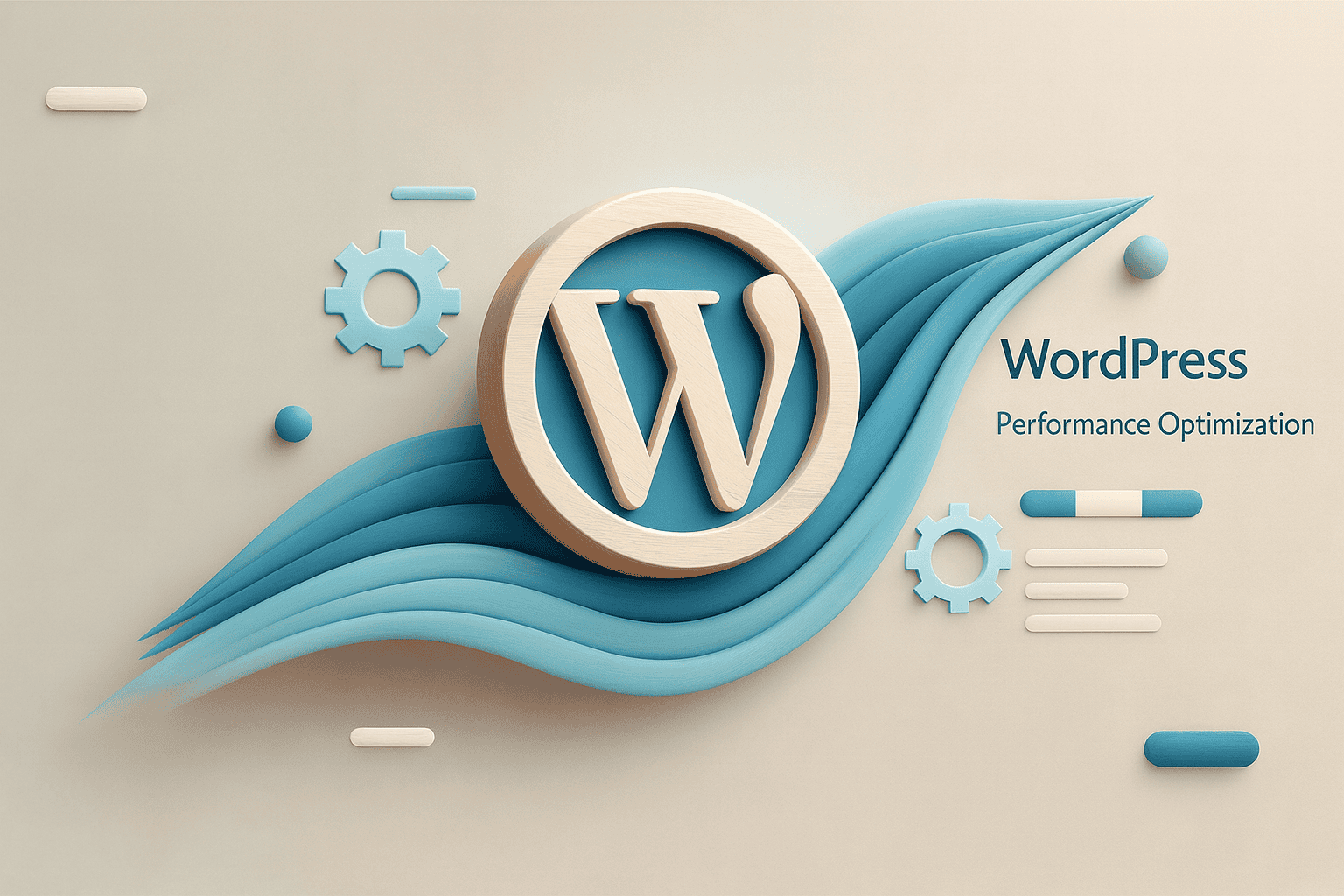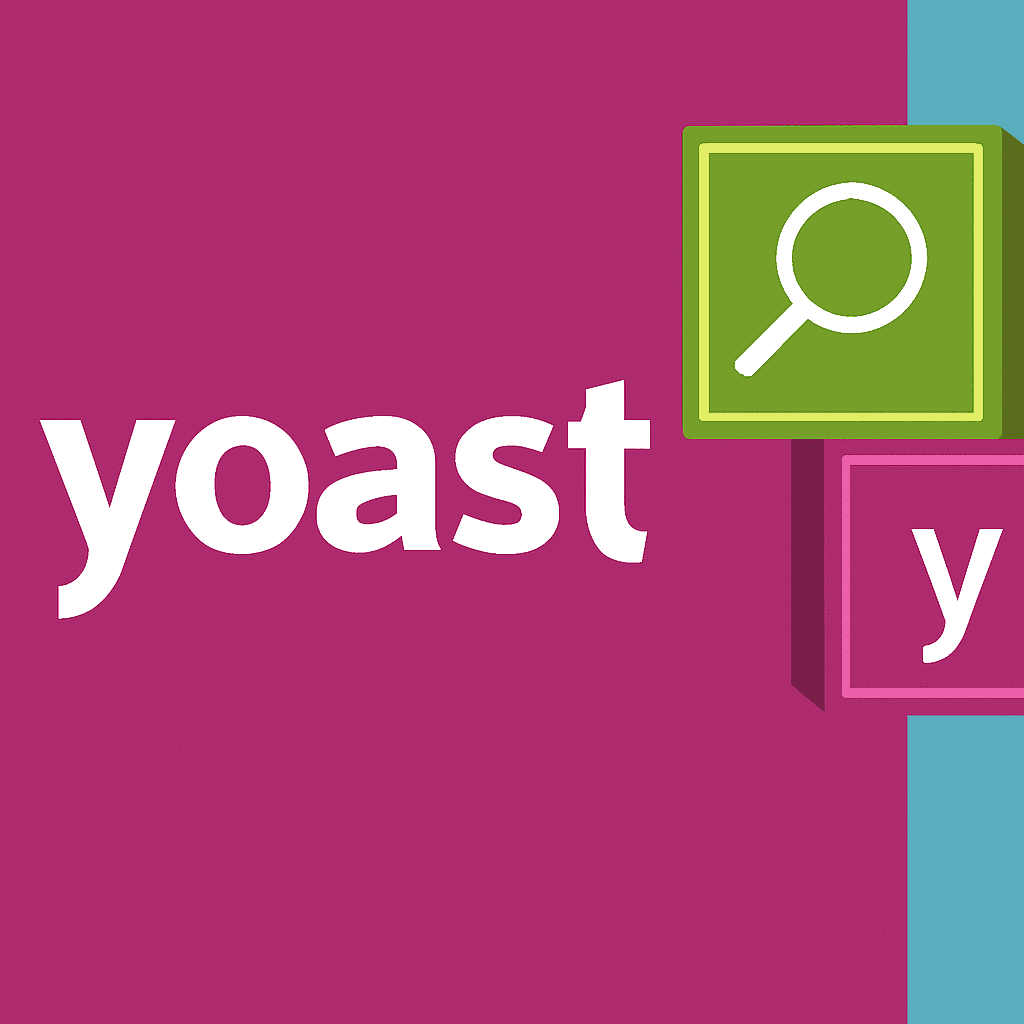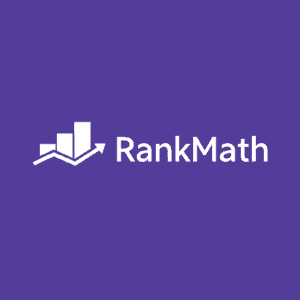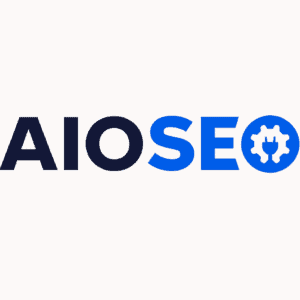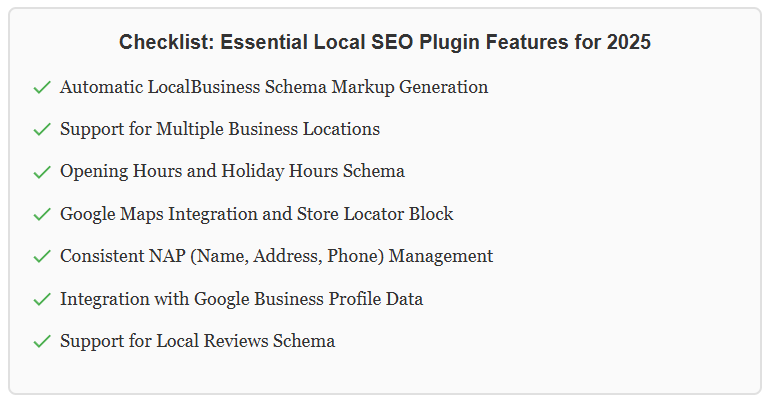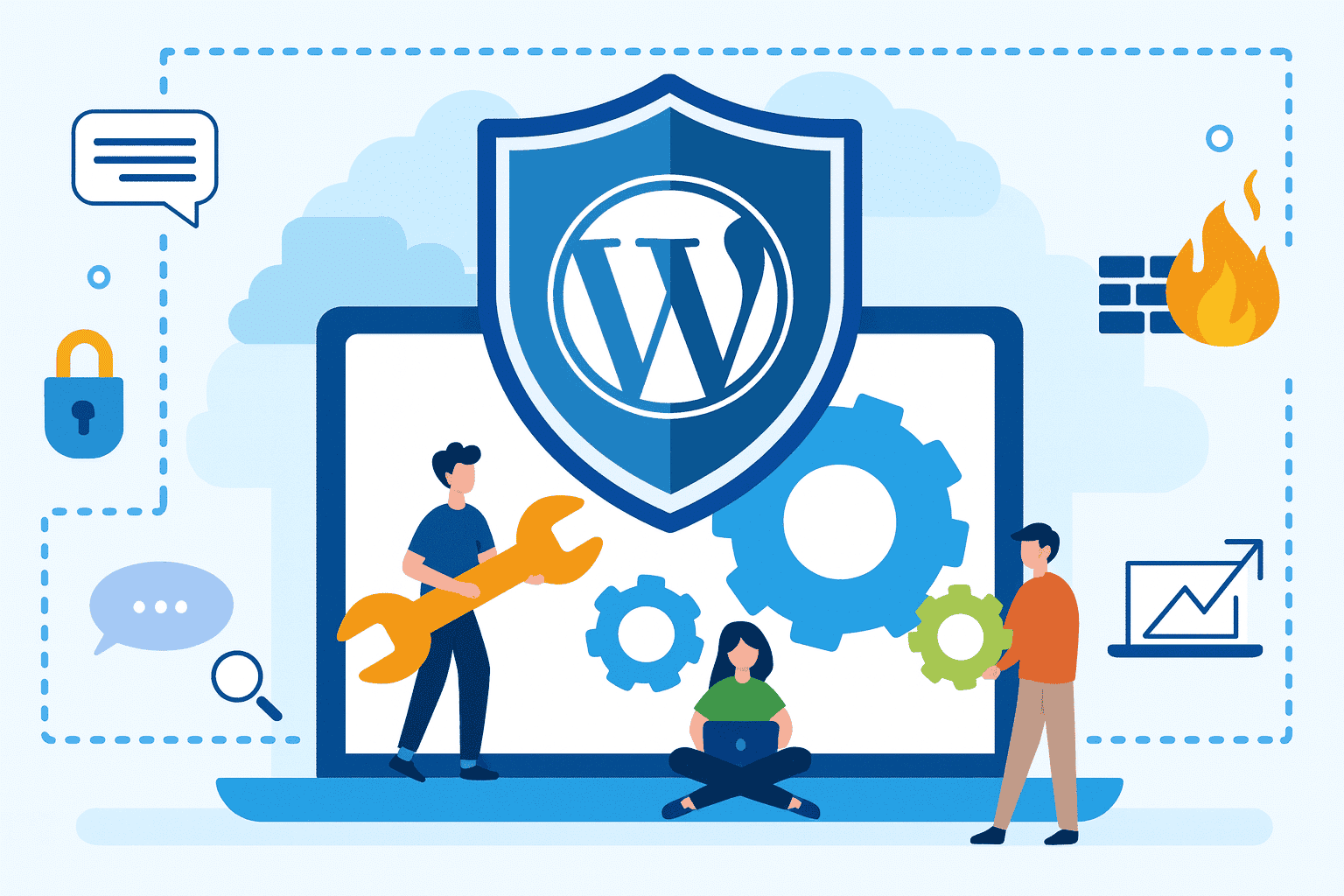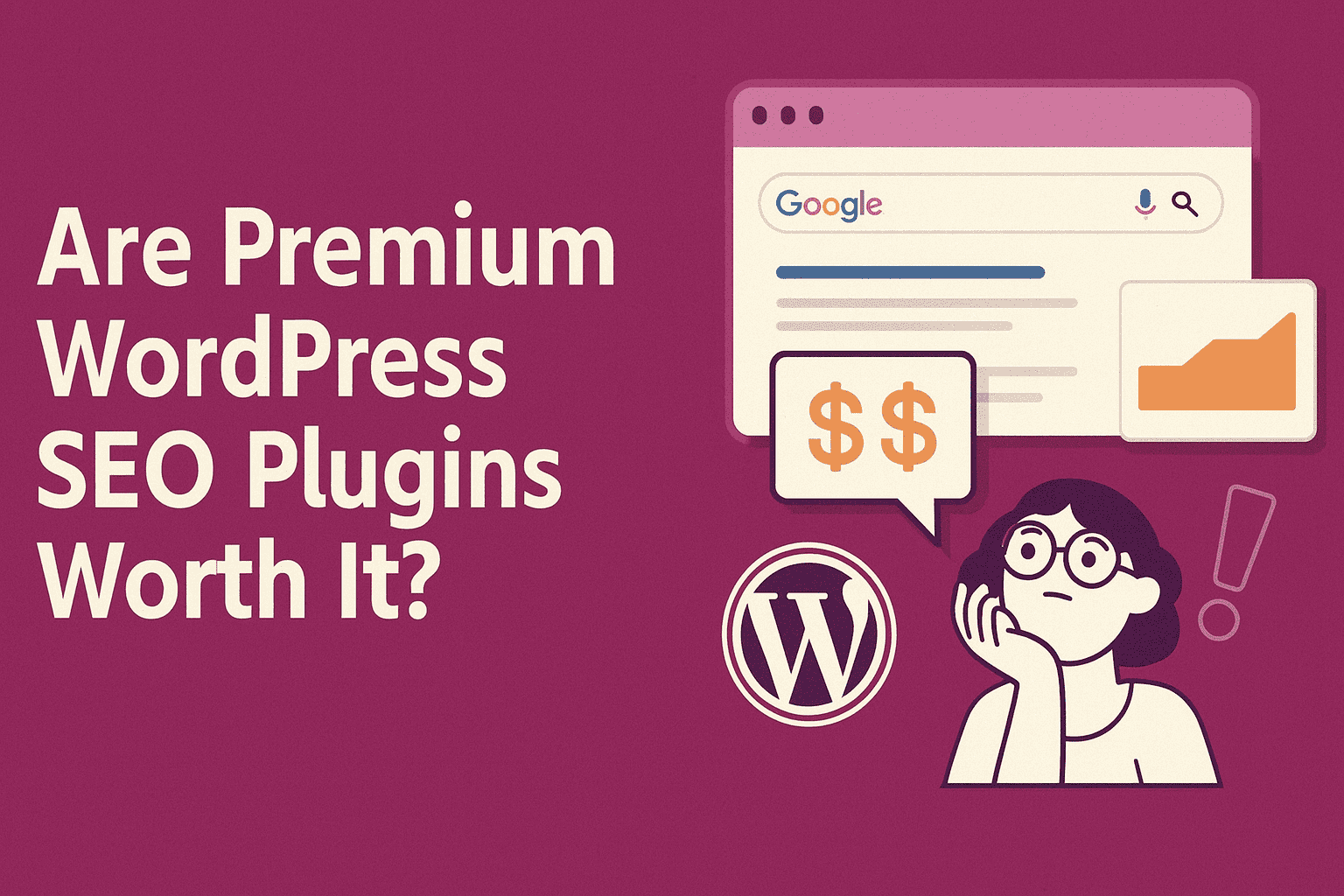WordPress Optimization Plugins 2025
TL;DR: WordPress optimization plugins are essential tools that enhance website performance, SEO, and user experience by automating tasks like caching, image compression, SEO optimization, and security. In 2025, plugins like Yoast SEO, WP Rocket, and Smush streamline on-page SEO, enhance site speed, and ensure mobile responsiveness, all without requiring advanced technical skills. Key benefits include improved search rankings through automated meta tags and schema markup, faster load times for better user retention, enhanced security against threats, and simplified content management for higher engagement and conversions. While manual optimization is possible, these plugins offer a cost-effective, scalable solution for businesses to stay competitive in search engine results and maximize ROI.
Table of Contents
Introduction: Why WordPress Optimization is Non-Negotiable in 2025
Part 1: Performance Optimization Plugins (The Need for Speed)
Why Speed Matters: The Business Case for Performance
Deep Dive: Caching Plugins
Deep Dive: Image & Asset Optimization
Troubleshooting & Best Practices
Part 2: SEO Optimization Plugins (Achieving Maximum Visibility)
The 2025 SEO Shift: Beyond Keywords to User Intent
Deep Dive: All-in-One SEO Plugins
Deep Dive: Specialized SEO Plugins for Businesses
Part 3: Security Optimization Plugins (Fortifying Your Digital Fortress)
Why Security is an Optimization Issue
Deep Dive: Comprehensive Security Plugins
Performance & Compatibility Considerations
Building Your Ultimate WordPress Optimization Stack
The ROI of Optimization: Analyzing Free vs. Premium Plugins
Frequently Asked Questions (FAQ)
Conclusion: A Holistic Approach to a High-Performing Website
What Are WordPress Speed Optimization Plugins?
The wordpress optimization plugins are specialized tools designed to enhance a website’s performance, search engine visibility, and user experience by automating and streamlining tasks such as SEO, site speed, caching, image optimization, and Security within the WordPress platform. These plugins enable website owners to efficiently manage technical and on-page SEO elements without requiring extensive coding knowledge, making them essential for businesses and individuals seeking to enhance their online presence. The benefits of using WordPress optimization plugins include:
- Improving site speed through caching and minification, leading to faster load times and better user retention.
- Enhancing SEO with automated meta tags, schema markup, and keyword optimization for higher search rankings.
- Simplifying content management by providing user-friendly interfaces for on-page edits and analytics tracking.
- Boosting mobile responsiveness to ensure seamless performance across devices.
- Strengthening site security with features like malware scanning and firewall integration.
- Increasing conversion rates by optimizing user experience and reducing bounce rates through streamlined functionality.
WordPress Optimization Plugins in 2025
In 2025, your website is your primary engine for growth, your storefront, and your brand’s first impression. A staggering 53.3% of all website traffic originates from organic search, yet a slow, insecure, or poorly optimized site will never capture its share of this vital audience. If your website takes more than three seconds to load, you could lose nearly a third of your potential visitors before they even see your homepage. This isn’t just a missed click; it’s a lost customer, a squandered lead, and a tarnished brand reputation.
The landscape has evolved dramatically. We’ve moved beyond the era of simple keyword stuffing and into a sophisticated ecosystem dominated by user experience and artificial intelligence. Google’s introduction of AI Overviews, which directly answer user queries on the search results page, means that only the most authoritative, well-structured, and trustworthy content gets cited. Simultaneously, Core Web Vitals—metrics that measure loading performance (LCP), interactivity (INP), and visual stability (CLS)—are no longer just technical jargon; they are direct ranking factors that quantify the quality of a user’s experience. A website that fails on these fronts is not just slow; it’s actively penalized by the very search engines it seeks to court.
To succeed in this demanding environment, a holistic optimization strategy is not just recommended—it is essential. This guide is built upon three foundational pillars that every business website must master:
- Performance: The raw speed and responsiveness of your site. This is about making your website lightning-fast to satisfy impatient users and demanding search algorithms.
- SEO (Search Engine Optimization): The art and science of structuring your site and content to achieve maximum visibility on Google and other search engines.
- Security: The critical task of protecting your digital assets, customer data, and brand trust from an ever-increasing number of cyber threats.
This report is meticulously crafted for the owners and managers of business websites—including local service providers, brick-and-mortar stores, corporate entities, and e-commerce shops—who understand that online dominance is a prerequisite for market leadership. We will dissect the most powerful WordPress plugins across these three categories, providing in-depth analysis, data-backed comparisons, and actionable strategies to transform your website from a digital liability into a high-performing asset. By the end of this guide, you will have a clear roadmap for selecting and implementing a plugin stack that drives traffic, engages users, and fortifies your online presence for the challenges and opportunities of 2025 and beyond.
Part 1: WordPress Performance Plugins (The Need for Speed Plugin)
In the digital attention economy, speed is currency. A visitor’s patience is measured in milliseconds, and search engines like Google have made it unequivocally clear that performance is not just a feature but a prerequisite for visibility. This section examines the plugins that form the frontline of your website’s performance, focusing on the technologies that directly impact site speed —a cornerstone of both user experience and search engine ranking.
Why WordPress Speed Plugins Matter: The Business Case for Performance
The connection between website speed and business outcomes is direct and quantifiable. Google’s own research has shown that as page load time goes from one to three seconds, the probability of a visitor bouncing (leaving after viewing only one page) increases by 32%. This isn’t a minor drop-off; it’s a significant leak in your conversion funnel. For an e-commerce site, a one-second delay can lead to a 7% reduction in conversions. For a business generating $100,000 per day, that one-second delay translates to $2.5 million in lost sales annually.
This user behavior is precisely why Google integrated Core Web Vitals into its ranking algorithm. These metrics are designed to measure real-world user experience:
- Largest Contentful Paint (LCP): Measures loading performance. To provide a good user experience, LCP should occur within 2.5 seconds of when the page first starts loading.
- Interaction to Next Paint (INP): Measures responsiveness to user interactions (like clicks or taps). A good INP is 200 milliseconds or less. This metric replaced First Input Delay (FID) in 2024 to better capture overall responsiveness.
- Cumulative Layout Shift (CLS): Measures visual stability, preventing frustrating moments when elements on the page shift unexpectedly. A good CLS score is 0.1 or less.
A site that excels in these areas is not just technically proficient; users perceive it as professional, reliable, and respectful of their time. As noted by Delicious Brains, good Core Web Vitals scores typically indicate a better user experience, which in turn leads to higher engagement, improved brand perception, and ultimately, better search rankings. Therefore, investing in performance optimization plugins is not a technical expense but a direct investment in user acquisition and retention.
Deep Dive: Caching Plugins
At the heart of performance optimization lies caching. WordPress, being a dynamic Content Management System (CMS), builds pages on the fly by querying the database and processing PHP scripts every time a visitor requests a page. This process is resource-intensive and slow. Caching solves this by creating and storing a static HTML version of your pages. When a visitor arrives, the server delivers this lightweight, pre-built version instantly, bypassing the slow PHP and database processing entirely.
There are two primary types of caching relevant here:
- Server-Side Caching (Page Caching): This is the core function of plugins like WP Rocket. It stores the static HTML files on your server, ready to be served to visitors.
- Browser Caching: This instructs a visitor’s browser to store static assets (like CSS, JavaScript, and images) locally on their computer. On subsequent visits, these files are loaded from the local cache instead of being re-downloaded, dramatically speeding up load times for repeat visitors.
A good caching plugin manages both, providing a comprehensive solution. Let’s compare the top contenders for 2025.
Top Contenders: WP Rocket, LiteSpeed Cache, and W3 Total Cache
While numerous caching plugins exist, these three consistently represent the top tier, each catering to a different user profile and technical environment.
WP Rocket
Best For: Beginners and users who want powerful results with minimal configuration.
WP Rocket has built its reputation on being the most user-friendly premium caching plugin. As WPBeginner notes, it’s the easiest and most beginner-friendly option. Upon activation, it automatically applies about 80% of web performance best practices, including page caching, browser caching, and GZIP compression, without requiring the user to touch a single setting. This “it just works” philosophy is its greatest strength.
Key Features:
- Automatic Optimization: Caching is enabled instantly upon activation.
- All-in-One Solution: Includes features that often require separate plugins, such as lazy loading for images and videos, database optimization, and minification of CSS/JS files.
- Advanced Script Management: Features such as “Delay JavaScript Execution” and “Remove Unused CSS” can provide significant performance improvements, especially for sites that heavily rely on third-party scripts.
- Excellent Compatibility: Works seamlessly with most themes, plugins, and hosts, and has specific optimizations for e-commerce sites, automatically excluding cart and checkout pages from the cache.
Ease of Use: Unmatched. The dashboard is clean, and complex features are enabled with simple toggles. This makes it ideal for business owners who are not developers.
Performance Impact: Consistently strong. In a large-scale test of 6,000 real-world sites conducted by Jetpack, WP Rocket demonstrated impressive performance, though Jetpack Boost slightly edged it out in the specific metrics tested. The test showed WP Rocket achieving an FCP of 0.88s and an LCP of 1.97s. However, its comprehensive feature set often provides a better overall optimization than single-purpose plugins.
LiteSpeed Cache
Best For: Users on a LiteSpeed web server.
LiteSpeed Cache is a free, powerhouse plugin, but with a significant caveat: its most powerful features, particularly server-level caching, only work if your website is hosted on a LiteSpeed server. As WPBeginner’s comparison highlights, the plugin is designed to communicate directly with the server’s caching abilities, making it incredibly efficient in that specific environment.
Key Features:
- Server-Level Caching: This is its killer feature, offering performance that application-level caching (like WP Rocket’s) can’t match on its own.
- QUIC.cloud CDN: Offers a free and premium CDN service specifically designed to work with LiteSpeed, including features like HTML caching (similar to Cloudflare’s APO).
- Comprehensive Free Features: The free version includes image optimization (with WebP conversion), database optimization, and advanced asset minification.
- Guest Mode: A unique feature that serves a highly optimized version of the site to first-time visitors to improve their initial experience.
Ease of Use: More complex than WP Rocket. While it offers presets, the sheer number of settings across multiple screens can be overwhelming for beginners. It’s geared more towards technically proficient users.
Performance Impact: Exceptional on a LiteSpeed server. When properly configured, it can outperform other plugins due to its tight integration with the server. However, on non-LiteSpeed servers (such as Apache or Nginx), it functions as a standard caching plugin, with its main advantage nullified.
W3 Total Cache
Best For: Advanced users and developers who demand granular control over every aspect of caching.
W3 Total Cache is one of the oldest and most feature-rich caching plugins available. It’s known for its complexity and the high degree of control it offers. This is not a plugin for the faint of heart; incorrect configuration can easily break a site. However, for a developer who knows what they’re doing, it provides an unparalleled level of customization.
Key Features:
- Multiple Caching Methods: Supports various caching methods, including page, object, database, and fragment caching (available in the Pro version).
- CDN Integration: Supports a wide range of CDNs, not just a specific partner.
- AMP Support: Includes specific optimizations for Accelerated Mobile Pages.
- Extensive Configuration: Allows fine-tuning of every caching policy, from cache expiry times to specific user agent groups.
Ease of Use: Difficult for beginners. The settings panel is vast and filled with technical terminology. The setup process is more involved than its competitors, requiring users to run tests and make choices about storage options.
Performance Impact: Highly variable. When configured perfectly by an expert, it can achieve excellent results. However, a suboptimal configuration can lead to worse performance than having no caching plugin at all.
Performance benchmarks show minor differences in raw speed between top plugins, highlighting the importance of
features and ease of use in making a final decision. Data from Jetpack’s performance tests.
Deep Dive: Image & Asset Optimization
While caching is foundational, it can’t fix a site weighed down by bloated assets. Unoptimized images are often the single most significant cause of slow load times. Similarly, poorly managed CSS and JavaScript files can block the rendering of your page, leaving visitors staring at a blank screen even as the content begins to download.
Image Compression and Lazy Loading
Every image you upload should be compressed to reduce its file size without compromising quality. Plugins like Smush or the built-in features of WP Rocket and LiteSpeed Cache can automate this process. However, the most impactful technique is lazy loading. This prevents images and videos from loading until they are about to enter the user’s viewport (i.e., as they scroll down the page). A handy feature, offered by plugins like WP Rocket and LazyLoad, is replacing YouTube iFrames with a lightweight preview thumbnail. This prevents the heavy YouTube player from loading until a user explicitly clicks to watch the video, saving significant load time on pages with embedded videos.
Script & CSS Optimization with Perfmatters
Even with a great caching plugin, you can often achieve further gains by optimizing how scripts and styles are loaded. This is where a dedicated performance plugin like Perfmatters shines. It’s designed to work in conjunction with your caching plugin, providing granular control over your site’s assets.
Key concepts Perfmatters helps you manage include:
- Minification: Removing unnecessary characters (like spaces and comments) from code files to reduce their size.
- Deferring/Delaying JavaScript: Deferring JS tells the browser to download the script but wait to execute it until after the page has finished rendering. Delaying JS (a more aggressive technique popularized by WP Rocket and FlyingPress) prevents scripts from loading at all until there is user interaction (like a scroll or click). This is highly effective for third-party scripts, such as analytics, chat widgets, or ads.
- Removing Unused CSS: Many themes and plugins load stylesheets across your entire site, even if the styles are only needed on a few pages. Tools that remove unused CSS generate a unique, critical stylesheet for each page, containing only the rules necessary to render the visible content, dramatically reducing file size and render-blocking time. Turning off Unnecessary Scripts: Perfmatters allows you to turn off scripts on a per-page basis. For example, you can prevent a contact form plugin’s scripts from loading on every page except your “Contact Us” page.
As one reviewer noted, combining WP Rocket and Perfmatters can lead to significant improvements in PageSpeed scores, as they address different yet complementary aspects of performance optimization.
Troubleshooting & Best Practices
Implementing performance plugins is not always a “set it and forget it” process. Their powerful features, especially script optimization, can sometimes cause conflicts.
Plugin Conflicts and How to Fix Them
The most common reason a caching or performance plugin “breaks” a site is due to JavaScript or CSS optimization. For example, delaying a critical script that’s needed for your site’s menu to function will cause the menu to stop working. The solution is to systematically identify the problematic script and exclude it from the optimization setting in your plugin’s dashboard. This often involves a process of trial and error: turn off the optimization, check if the site works, then re-enable it while excluding scripts one by one until the conflict is resolved. This is a key reason why good support and documentation are vital for premium plugins.
Another common issue is using multiple plugins that perform the same function. For instance, running two caching plugins or having your theme’s built-in minification enabled alongside your caching plugin’s minification will almost certainly cause problems. The rule of thumb is “less is more”; choose one plugin for each core function and disable redundant features in other plugins or your theme.
The Critical Role of Hosting
It’s impossible to discuss performance without mentioning hosting. Your hosting server is the engine of your website. A cheap, underpowered shared hosting plan will bottleneck your site’s performance, no matter how well-optimized your plugins are. High-quality managed WordPress hosts, such as Kinsta, WP Engine, and SiteGround, often provide server-level caching, which is inherently faster than plugin-based caching. As experts at Codeable point out, if your host already provides a robust caching system, adding another plugin on top can cause conflicts. In these cases, you might not need a complete caching plugin. However, a supplementary tool like Perfmatters can still provide significant value by optimizing assets, a task not typically handled by server-level caching.
Part 2: SEO Optimization Plugins (Achieving Maximum Visibility)
If performance optimization builds the engine of your website, Search Engine Optimization (SEO) provides the map and the fuel. In 2025, SEO is a far more nuanced discipline than it was just a few years ago. It’s about signaling quality, authority, and relevance to increasingly sophisticated AI-driven search engines. This section focuses on the plugins that help you master both the technical and content-related aspects of SEO, ensuring your business is not just visible, but prominent.
The 2025 SEO Shift: Beyond Keywords to User Intent
The old SEO playbook is obsolete. The industry is undergoing a fundamental shift away from a narrow focus on exact-match keywords and toward a more holistic, user-centric approach. As WordStream’s 2025 trends report highlights, the focus should be on user intent rather than exact phrase matching. Google’s own technological evolution drives this. AI systems like Navboost and the algorithms behind AI Overviews are designed to understand the context and natural language of a query, not just the words themselves. A study found that only 5.4% of Google AI Overviews contained an exact match of the user’s query, proving that Google prioritizes answering the user’s underlying question over simply matching keywords.
This shift has two significant implications for your WordPress strategy:
- Topical Authority: Instead of creating one-off posts for individual keywords, the winning strategy is to build “topic clusters.” This involves creating a comprehensive “pillar page” on a broad topic and supporting it with multiple, in-depth “cluster pages” on related subtopics, all of which are interlinked. This structure signals to Google that your website is an authority on the subject, making you a more trusted source for a wide range of related queries.
- Structured Data (Schema Markup): Schema is a vocabulary of code that you add to your site to help search engines understand your content more deeply. It’s what powers rich snippets in search results—like star ratings, event dates, and FAQ dropdowns. In an AI-driven search world, providing this structured, machine-readable data is no longer optional; it’s critical for being featured in rich results and AI Overviews.
The right SEO plugin is your primary tool for implementing both of these strategies directly within WordPress.
Deep Dive: All-in-One SEO Plugins
An all-in-one SEO plugin is an essential component of any WordPress site. It automates many technical SEO tasks and provides a framework for optimizing on-page content. The three dominant players in this space are Yoast SEO, Rank Math, and All in One SEO (AIOSEO).
Yoast SEO
Best For: Beginners and content-focused users who appreciate clear, straightforward guidance.
As one of the oldest and most popular WordPress plugins, Yoast has become synonymous with WordPress SEO. Its hallmark feature is the “traffic light” system, which provides real-time feedback on both SEO and readability as you write. This makes it incredibly intuitive for non-technical users to grasp the basics of on-page optimization.
- On-Page Optimization: Yoast’s analysis focuses on a “focus keyphrase.” It checks for its presence in the title, meta description, headings, and content. The readability analysis is also a standout feature, helping writers create content that is easy to digest.
- Technical SEO: The free version handles the essentials flawlessly, including generating XML sitemaps, allowing edits to robots.txt and .htaccess, and setting canonical URLs.
- Schema Markup: Yoast automatically adds foundational schema (like `Website` and `Organization`) and allows you to specify the type for each page (e.g., `Article`, `ContactPage`). Its FAQ and How-to blocks automatically generate the corresponding schema, which is a user-friendly implementation.
- AI Features: The premium version introduces AI-powered tools to generate SEO titles and meta descriptions, streamlining the content creation process.
Rank Math
Best For: Users who want the most features in a free package and appreciate a modern, data-driven interface.
Rank Math entered the market later but quickly gained popularity by offering a vast array of features for free that were previously only available in premium plugins. Many comparisons conclude that Rank Math is better than Yoast in terms of free features. Its modular design allows users to enable only the features they need, keeping the interface clean and uncluttered.
On-Page Optimization: Rank Math allows optimization for up to five focus keywords in its free version. Its analysis is score-based (out of 100) and provides a comprehensive checklist of SEO recommendations.
Technical SEO: It includes an advanced redirection manager, 404 error monitoring, and deep integration with Google Search Console directly in the WordPress dashboard—all in the free version.
Schema Markup: This is a significant strength. Rank Math offers a rich library of schema types for free, including Article, Book, Course, Event, Job Posting, and more, with an easy-to-use setup wizard.
AI Features: Its “Content AI” feature (available on a credit basis) analyzes content against top-ranking competitors to suggest keywords, word count, and heading structure, similar to dedicated tools like Surfer SEO.
All in One SEO (AIOSEO)
Best For: Business owners and marketers looking for a powerful, user-friendly plugin with excellent automation and integration capabilities.
As the original WordPress SEO plugin, AIOSEO has undergone a complete overhaul in recent years, re-emerging as a top contender with a focus on ease of use and powerful features. The team at WPBeginner famously switched from Yoast to AIOSEO, citing its superior features and user experience.
- On-Page Optimization: AIOSEO’s “TruSEO” on-page analysis provides a detailed checklist and score. A standout feature is its AI-powered title and description generator, which integrates with ChatGPT to provide suggestions directly in the editor.
- Technical SEO: AIOSEO excels at automation. It offers smart XML sitemaps, a powerful redirection manager, and a “Link Assistant” tool for analyzing internal and external links, including identifying orphaned pages.
- Schema Markup: It features a next-generation schema generator that supports a wide range of types, allowing for custom schema creation and providing users with immense flexibility.
- Unique Features: AIOSEO’s “Search Statistics” addon pulls Google Search Console data into WordPress and provides actionable insights, showing you which keywords are decaying and which pages need an update. Its Author SEO feature is also excellent for establishing E-E-A-T (Experience, Expertise, Authoritativeness, Trustworthiness).
| Feature Comparison: Yoast vs. Rank Math vs. AIOSEO (2025) | |||
| Feature | Yoast SEO | Rank Math | All in One SEO (AIOSEO) |
|---|---|---|---|
| Setup Wizard | Comprehensive, but can feel technical for beginners. | Intuitive and quick, with different modes (Easy, Advanced). | Very beginner-friendly, 4-step process. |
| Focus Keywords (Free) | 1 focus keyphrase. | Up to 5 focus keywords. | 1 focus keyphrase. |
| Content Analysis | Good (SEO & Readability “traffic lights”). | Excellent (Score-based, detailed checklist). | Excellent (TruSEO score, detailed checklist). |
| XML Sitemaps | Yes (Standard). | Yes (Advanced, including video and news). | Yes (Advanced, including Video, News, RSS). |
| Schema Markup (Free) | Basic (Org, Person, FAQ/How-to blocks). | Excellent (Rich library of 15+ types). | Excellent (Next-gen schema generator, rich library). |
| Redirection Manager | Premium Only. | Free (Basic). | Premium Only (Very Advanced). |
| 404 Monitoring | Premium Only. | Free. | Premium Only. |
| Internal Linking Suggestions | Premium Only. | Free (Basic). | Premium Only (Link Assistant). |
| AI Content Tools | Premium (Title/Meta Generation). | Free & Paid (Content AI credits). | Premium (AI Title/Meta Generator). |
| Local SEO | Premium Addon. | Free (Basic), Pro (Advanced). | Premium Feature. |
| WooCommerce SEO | Premium Addon. | Free (Basic), Pro (Advanced). | Premium Feature. |
| Pricing (Starts) | Free/Premium: $99/year. | Free/PRO from $59/year. | Free / Basic from ~$49.60/year. |
Deep Dive: Specialized SEO Plugins for Businesses
For many businesses, general SEO is not enough. Success hinges on dominating a specific niche, such as a local service area or an e-commerce category. The top all-in-one plugins offer powerful features to address these needs, often in their premium versions.
Local SEO for Service and Brick-and-Mortar Businesses
Local SEO is the practice of optimizing your online presence to attract more business from relevant local searches. These are searches like “plumber near me” or “best coffee shop in Brooklyn.” According to WPBeginner, local SEO is one of the biggest challenges for small business owners, yet it’s critical for survival.
Google’s local ranking algorithm is primarily based on three factors: Relevance, Distance, and Prominence. While you can’t change your distance from a searcher, you can heavily influence relevance and prominence. A local SEO plugin helps by:
- Implementing LocalBusiness Schema: This is the most crucial step. It tells Google your business name, address, phone number (NAP), opening hours, and business type in a structured format. Plugins like Rank Math Pro and AIOSEO make adding this schema, including geo-coordinates, incredibly simple.
- Managing Multiple Locations: For franchises or businesses with multiple branches, plugins like Yoast Local SEO and AIOSEO Pro enable you to create unique location pages and corresponding schema for each, thereby preventing confusion for search engines.
- Google Business Profile (GBP) Integration: While GBP is managed outside of WordPress, SEO plugins ensure your website information is consistent with your GBP listing. Some plugins, like SEOPress Pro, even offer direct integration to help manage your profile.
By correctly implementing these features, you significantly increase your chances of appearing in the coveted “Local Pack” or “Map Pack”—the block of three local business listings that appear at the top of many local search results.
eCommerce SEO for WooCommerce
For online stores, SEO has its own unique set of challenges. You need to optimize not just pages, but hundreds or thousands of product listings, categories, and tags. A good SEO plugin with WooCommerce integration is essential.
AIOSEO’s WooCommerce SEO module and similar features in Rank Math and the Yoast WooCommerce SEO addon provide critical optimizations:
- Product Schema: They automatically add `Product` schema to your product pages, including price, availability, and reviews. This feature enables rich snippets with star ratings and pricing to appear in search results, which can significantly increase click-through rates.
- Category & Tag Optimization: They provide SEO controls for product categories and tags, helping you avoid duplicate content and optimize these crucial pages for broader keywords.
- Social Media Graphs: They ensure that when a product is shared on social media, it displays a rich card with the product image, price, and description, rather than just a plain link.
Without these specialized features, a WooCommerce store is at a significant disadvantage, missing out on the rich results that attract high-intent buyers.
Part 3: Security Optimization Plugins (Fortifying Your Digital Fortress)
A website that is fast and perfectly optimized for SEO is worthless if it’s offline or compromised. In 2025, WordPress security is not a separate discipline; it is an integral part of the optimization process. A security breach can lead to devastating consequences, including data loss, theft of customer information, Google blocklisting (which removes your site from search results entirely), and an irreversible loss of brand reputation and user trust.
Why Security is an Optimization Issue
The threats are evolving. Hackers are now leveraging AI to find exploits and automate attacks at an unprecedented scale. As security experts predict for 2025, the general availability of GenAI tools is being used to generate new types of malware and automate vulnerability scanning. This means that reactive Security is no longer enough. A proactive, layered defense is essential for any serious business website.
From an optimization perspective, poor Security directly impacts your bottom line:
- Downtime: A successful DDoS attack or hack can take your site offline for hours or days, resulting in lost revenue and customer frustration.
- SEO Penalties: Google will quickly de-index a site it identifies as distributing malware or engaging in spam, wiping out your search visibility overnight.
- Performance Degradation: Malicious scripts running in the background can consume server resources, causing your site to slow down dramatically.
- Loss of Trust: A “Not Secure” warning in a browser or a public data breach is one of the fastest ways to destroy customer confidence.
A comprehensive security plugin is your first and most important line of defense.
Deep Dive: Comprehensive Security Plugins
A good security plugin provides a multi-layered defense system. The core components are a firewall, a malware scanner, and Security hardening features.
Wordfence Security
Best For: Users who want a powerful, free, all-in-one security solution with a robust firewall.
With over 4 million active installations, Wordfence is one of the most popular security plugins. Its strength lies in its endpoint Web Application Firewall (WAF), which runs directly on your server. This allows it to integrate deeply with WordPress, understanding user access levels and blocking threats before they hit the WordPress core.
- Firewall Type: Endpoint WAF. It’s highly effective but can consume more server resources than cloud-based alternatives. The free version’s firewall rules are delayed by 30 days, while premium users get real-time updates.
- Malware Scanning: The scanner is comprehensive, checking core files, themes, and plugins against the WordPress repository versions and looking for known malware signatures. However, scans can be resource-intensive on shared hosting.
- Login Protection: Excellent features, including brute force protection, two-factor authentication (2FA), and CAPTCHA on the login page.
- Cleanup Services: Wordfence offers a premium site cleaning service for a one-time fee (around $490), which is separate from its main subscription.
Sucuri Security
Best For: Businesses that prioritize performance and want a hands-off, cloud-based security solution with professional cleanup services.
Sucuri’s approach is fundamentally different from Wordfence. Its most powerful feature, the WAF, is a cloud-based service that acts as a reverse proxy. All your website traffic is filtered through Sucuri’s servers before it ever reaches your host. This approach significantly reduces the load on your server and can even improve performance thanks to its integrated CDN.
- Firewall Type: Cloud-based (DNS-level) WAF. This is a premium feature. It’s excellent at mitigating large-scale DDoS attacks and blocks bad traffic before it touches your server.
- Malware Scanning: The free plugin offers a remote scanner. The paid platform provides more thorough server-side scanning.
- Login Protection: Provides security hardening features, but its login protection is less extensive than Wordfence’s out of the box.
- Cleanup Services: This is Sucuri’s core value proposition. All paid plans include unlimited malware removal and hack cleanup by their expert team, with no extra fees. This provides immense peace of mind for business owners.
Solid Security (formerly iThemes Security) & MalCare
Best for: Users seeking user-friendly hardening (Solid Security) or low-performance-impact scanning (MalCare).
Solid Security is known for its beginner-friendly interface and one-click security hardening features. It’s an excellent choice for users who feel overwhelmed by Wordfence’s complex settings. It offers strong login protection, file change detection, and database backups.
MalCare offers a unique approach to scanning. Instead of running scans on your server, MalCare copies your files to its own servers and scans them there. This means its malware scanner has virtually zero performance impact on your live site, making it an ideal choice for sites on resource-limited hosting. Its one-click malware removal is a premium feature.
| Comparison: Top WordPress Security Plugins (2025) | |||
| Feature | Wordfence | Sucuri | Solid Security / MalCare |
|---|---|---|---|
| Firewall Type | Endpoint (WAF) – Runs on your server. | Cloud-based (DNS-level) – Filters traffic before it reaches your server. (Premium) | Basic application-level firewall. |
| Performance Impact | Moderate to high, especially during scans. | Minimal to positive, due to cloud WAF and CDN. | Minimal (MalCare’s off-site scanning is a key advantage). |
| Malware Scanning | Comprehensive, but resource-intensive. | Good remote scanner (free), server-side scanning (Premium). | Excellent, zero-load off-site scanning (MalCare). |
| Malware Cleanup | Paid service (one-time fee, ~$490). | Included in all premium plans (unlimited). | Included in premium plans (one-click removal). |
| Ease of Use | Moderate. It can be overwhelming for beginners. | Easy (plugin), but DNS setup for WAF can be technical. | Very Easy (Solid Security) / Easy (MalCare). |
| Best For | Robust free protection, hands-on control. | Performance-conscious sites, guaranteed cleanup. | Beginners (Solid) or sites on shared hosting (MalCare). |
| Pricing (Starts) | Free/Premium: $119/year. | Free /Pemium f:199.99/year. | Free / Premium from $99/year (Solid) or $149/year (MalCare). |
Performance & Compatibility Considerations
A common concern is that security plugins will slow down a website. While this can be true for poorly configured or resource-heavy plugins, it’s not a universal rule. The key is choosing the right tool and setting it up correctly.
As discussed, a cloud-based firewall, such as Sucuri’s, will generally have less impact on your server’s performance than an endpoint firewall,ike Wordfence’s, which must process every request on your server. This makes Sucuri a strong choice for high-traffic sites or those on shared hosting where server resources are limited.
Compatibility between security and caching plugins is another critical area. Both types of plugins interact with website traffic at a low level, which can lead to conflicts. For example, a caching plugin might cache a page with a security nonce (a one-time use token), causing forms to fail for subsequent visitors. Most premium plugins are aware of these issues and have built-in compatibilities. For instance, WP Rocket has specific integrations to ensure it works smoothly with major security plugins. The best practice is to check the documentation for both plugins and, if necessary, configure one to exclude pages or functions controlled by the other.
Building Your Ultimate WordPress Optimization Stack
No single plugin can perfectly optimize every aspect of a WordPress site. The most effective approach is to build a “plugin stack”—a carefully curated set of tools that work in harmony, each handling a specific optimization pillar without creating conflicts. The philosophy behind a good stack is not to add as many plugins as possible, but to choose a few powerful, well-coded plugins that cover all your bases efficiently.
As experts in enterprise WordPress suggest, building the perfect stack involves choosing the right plugins for your unique needs, optimizing their configuration, and ensuring they are secure and well-maintained. Below are three recommended stacks tailored for different types of business websites, based on the analysis in this guide.
How to Choose Your Optimization Plugin Stack
Step 1: Assess Your Primary Need
What is your most significant pain point? Slow speed, low traffic, or security vulnerabilities?
↓
Step 2: Choose Your Hosting Environment
Are you on a standard host (e.g., Apache/Nginx) or a specialized one (e.g., LiteSpeed)? Your host’s technology dictates the best performance plugin.
↓
Step 3: Select Your Core Optimization Plugins (The “Big Three”)
Performance Plugin: Choose WP Rocket (all-around), LiteSpeed Cache (LiteSpeed servers), or FlyingPress (advanced users).
SEO Plugin: Choose Rank Math (free features), AIOSEO (business tools), or Yoast (beginner-friendly).
Security Plugin: Choose Wordfence (robust free WAF), Sucuri (cloud WAF & cleanup), or MalCare (low performance impact).
↓
Step 4: Test for Conflicts
After installing your core stack, test all critical site functions (forms, checkout, menus). Use a staging site for this process to avoid disrupting your live site. If a conflict arises, check plugin settings for exclusions or contact support.
↓
Step 5: Monitor and Maintain
Regularly monitor your Core Web Vitals, SEO rankings, and security logs to ensure optimal performance. Keep all plugins updated and periodically review your stack to ensure it continues to meet your needs.
Recommended Stack for a Local Service Business
A local service business (e.g., a plumber, law firm, or dental clinic) needs to dominate local search results and instill trust. Speed and a strong local SEO signal are paramount.
- SEO Plugin: Rank Math Pro.
Reasoning: Rank Math’s free version offers an excellent basic schema, but the Pro version unlocks advanced Local SEO schema, support for multiple locations, and a KML file generator for sitemaps, all of which are crucial for local search visibility. Its integration with Google Business Profile is a significant advantage. - Performance Plugin: WP Rocket.
Reasoning: Local business sites are often content-heavy but may not be on specialized hosting. WP Rocket’s ease of use and powerful, automatic optimizations provide an immediate speed boost, improving user experience for local visitors and helping with local ranking factors. - Security Plugin: Wordfence Premium.
Reasoning: Local businesses are prime targets for brute force attacks. Wordfence’s endpoint firewall and robust login protection features (like 2FA and country blocking) provide excellent, hands-on protection. The premium version ensures real-time threat intelligence, which is critical.
Recommended Stack for a Content-Heavy Corporate Blog
A corporate blog’s primary goals are to build topical authority, generate leads, and represent the brand professionally. Performance and sophisticated SEO tools are key.
- SEO Plugin: All in One SEO (AIOSEO) Pro.
Reasoning: AIOSEO excels in content-focused environments. Its TruSEO analysis, Link Assistant for building topic clusters, and advanced Author SEO features are perfect for establishing E-E-A-T. The Search Statistics module is invaluable for identifying content decay and new opportunities. - Performance Plugin: FlyingPress.
Reasoning: For sites where performance is a competitive advantage, FlyingPress offers cutting-edge features like lazy rendering HTML elements and superior “remove unused CSS” functionality. Performance enthusiasts often cite it as a step up from WP Rocket for those willing to configure it. - Security Plugin: Sucuri.
Reasoning: A high-traffic corporate blog cannot afford downtime or performance degradation from security scans. Sucuri’s cloud-based WAF offloads the security burden from the server, ensuring consistent performance. The included professional cleanup service provides an essential insurance policy for a high-value brand asset.
Recommended Stack for a WooCommerce Store
An e-commerce store’s success depends on speed, Security during transactions, and visibility for product searches.
- SEO Plugin: AIOSEO Elite or Rank Math Business.
Reasoning: Both plugins offer excellent, dedicated WooCommerce SEO features. They automate the creation of `Product` schema, optimize category pages, and ensure product details are correctly displayed on social media. AIOSEO’s deep integration with product attributes is particularly powerful for stores with complex product variations. - Performance Plugin: LiteSpeed Cache (if on a LiteSpeed server) or WP Rocket.
Reasoning: If the store is hosted on LiteSpeed, the LiteSpeed Cache plugin is the undisputed champion due to its server-level integration. For all other hosts, WP Rocket is the best choice because it automatically excludes cart, checkout, and account pages from caching, preventing critical functionality from breaking. This e-commerce awareness is a crucial feature. - Security Plugin: Cloudflare Pro + Wordfence.
Reasoning: E-commerce sites require layered Security. Cloudflare’s Pro plan offers a robust CDN and a DNS-level WAF to prevent DDoS attacks and filter malicious traffic. Wordfence complements this on the server, which provides application-level Security, malware scanning, and specific WordPress login protection. This combination protects against both network-level and application-level threats, which is vital when handling customer data and transactions.
Building Your Ultimate WordPress Optimization Stack
No single plugin can perfectly optimize every aspect of a WordPress site. The most effective approach is to build a “plugin stack”—a carefully curated set of tools that work in harmony, each handling a specific optimization pillar without creating conflicts. The philosophy behind a good stack is not to add as many plugins as possible, but to choose a few powerful, well-coded plugins that cover all your bases efficiently.
As experts in enterprise WordPress suggest, building the perfect stack involves choosing the right plugins for your unique needs, optimizing their configuration, and ensuring they are secure and well-maintained. Below are three recommended stacks tailored for different types of business websites, based on the analysis in this guide.
Recommended Stack for a Local Service Business
A local service business (e.g., a plumber, law firm, or dental clinic) needs to dominate local search results and instill trust. Speed and a strong local SEO signal are paramount.
- SEO Plugin: Rank Math Pro.
Reasoning: Rank Math’s free version offers an excellent basic schema, but the Pro version unlocks advanced Local SEO schema, support for multiple locations, and a KML file generator for sitemaps, all of which are crucial for local search visibility. Its integration with Google Business Profile is a significant advantage. - Performance Plugin: WP Rocket.
Reasoning: Local business sites are often content-heavy but may not be on specialized hosting. WP Rocket’s ease of use and powerful, automatic optimizations provide an immediate speed boost, improving user experience for local visitors and helping with local ranking factors. - Security Plugin: Wordfence Premium.
Reasoning: Local businesses are prime targets for brute force attacks. Wordfence’s endpoint firewall and robust login protection features (like 2FA and country blocking) provide excellent, hands-on protection. The premium version ensures real-time threat intelligence, which is critical. - Forms Plugin: WPForms Pro.
Reasoning: To capture leads effectively, a reliable form builder is essential. WPForms Pro offers features such as conditional logic and entry management, which are ideal for managing service inquiries and quote requests. - Backup Plugin: UpdraftPlus Premium.
Reasoning: For a business that relies on lead generation, losing form entries or site data is not an option. UpdraftPlus provides reliable, automated backups to a cloud location of your choice.
Recommended Stack for a Content-Heavy Corporate Blog
A corporate blog’s primary goals are to build topical authority, generate leads, and represent the brand professionally. Performance and sophisticated SEO tools are key.
- SEO Plugin: All in One SEO (AIOSEO) Pro.
Reasoning: AIOSEO excels in content-focused environments. Its TruSEO analysis, Link Assistant for building topic clusters, and advanced Author SEO features are perfect for establishing E-E-A-T. The Search Statistics module is invaluable for identifying content decay and new opportunities. - Performance Plugin: FlyingPress.
Reasoning: For sites where performance is a competitive advantage, FlyingPress offers cutting-edge features, including lazy rendering of HTML elements and superior “remove unused CSS” functionality. Performance enthusiasts often cite it as a step up from WP Rocket for those willing to configure it. - Security Plugin: Sucuri.
Reasoning: A high-traffic corporate blog cannot afford downtime or performance degradation from security scans. Sucuri’s cloud-based WAF offloads the security burden from the server, ensuring consistent performance. The included professional cleanup service provides an essential insurance policy for a high-value brand asset. - Content Structure Plugins:
- Link Whisper: To automate and enhance the internal linking process, which is crucial for building topic clusters.
- Easy Table of Contents: To improve user experience on long-form pillar content and gain “jump to” links in SERPs.
- Analytics Plugin: MonsterInsights Pro.
Reasoning: To track content performance, user engagement, and conversion goals with a user-friendly dashboard directly within WordPress.
Recommended Stack for a WooCommerce Store
An e-commerce store’s success depends on speed, Security during transactions, and visibility for product searches.
- SEO Plugin: AIOSEO Elite or Rank Math Business.
Reasoning: Both plugins offer excellent, dedicated WooCommerce SEO features. They automate the creation of `Product` schema, optimize category pages, and ensure product details are correctly displayed on social media. AIOSEO’s deep integration with product attributes is particularly powerful for stores with complex product variations. - Performance Plugin: LiteSpeed Cache (if on a LiteSpeed server) or WP Rocket.
Reasoning: If the store is hosted on LiteSpeed, the LiteSpeed Cache plugin is the undisputed champion due to its server-level integration. For all other hosts, WP Rocket is the best choice because it automatically excludes cart, checkout, and account pages from caching, preventing critical functionality from breaking. This e-commerce awareness is a crucial feature. - Security Plugin: Cloudflare Pro + Wordfence.
Reasoning: E-commerce sites require layered Security. Cloudflare’s Pro plan offers a robust CDN and a DNS-level WAF to prevent DDoS attacks and filter malicious traffic. Wordfence complements this on the server, which provides application-level Security, malware scanning, and specific WordPress login protection. This combination protects against both network-level and application-level threats, which is vital when handling customer data and transactions. - Lead Generation Plugin: OptinMonster.
Reasoning: To combat cart abandonment and build an email list for promotions, OptinMonster’s exit-intent popups and targeted campaigns are invaluable for e-commerce stores. - Backup Plugin: Solid Backups.
Reasoning: E-commerce stores cannot afford to lose orders or customer data. Solid Backups (from the trusted iThemes team) provides real-time, reliable backups to ensure business continuity.
The ROI of Optimization: Analyzing Free vs. Premium Plugins
For any business, the decision to invest in premium plugins must be justified by a clear return on investment (ROI). While free plugins offer a fantastic starting point, premium tools provide advanced features, dedicated support, and guaranteed updates that can translate into tangible financial gains. Understanding this value proposition is key to building a budget for a truly optimized website.
The basic formula for calculating ROI is simple: ROI = (Gain from Investment – Cost of Investment) / Cost of Investment. The challenge lies in accurately quantifying the “gain” from optimization.
Calculating the Cost of Investment
This is the straightforward part of the equation. A typical premium optimization stack might include:
- Performance Plugin (e.g., WP Rocket): ~$59/year
- SEO Plugin (e.g., Yoast Premium or AIOSEO Plus): ~$99/year
- Security Plugin (e.g., Wordfence Premium): ~$119/year
- Backup Plugin (e.g., UpdraftPlus Premium): ~$70/year
- Forms Plugin (e.g., WPForms Pro): ~$199/year
This brings the total annual investment to approximately $546. Now, let’s analyze the potential returns that justify this cost.
Calculating the Return on Investment
The “gain” from optimization is multifaceted and can be measured across our core pillars:
1. Return from Performance:
Faster load times have a direct impact on user behavior. As previously mentioned, a 1-second delay can result in a 7% decrease in conversions. If your site’s conversion rate is 2% and you improve load times by just one second, you could theoretically increase your conversion rate to 2.14%. For a site with 50,000 monthly visitors and an average order value of $100, this slight improvement translates to over $16,000 in additional annual revenue. Premium plugins, such as WP Rocket or FlyingPress, with their advanced features for delaying JavaScript and removing unused CSS, are often necessary to achieve these sub-second improvements that free plugins can’t deliver.
2. Return from SEO:
The return from SEO can be estimated by calculating the value of organic traffic. Ahrefs provides a valuable framework for this. Let’s say you use a premium SEO plugin’s redirection manager to fix broken links and its advanced schema to win a featured snippet, moving your rank for a key commercial keyword from position 5 to position 2. This could increase your click-through rate (CTR) from 5% to 15%.
The formula for potential revenue gain is: (Monthly Search Volume × CTR Increase) × Conversion Rate × Average Customer Lifetime Value = Additional Monthly Revenue. For a keyword with 10,000 monthly searches, a 10% CTR increase (1,000 extra visitors), a 2% conversion rate, and a $500 customer value, the gain is $10,000 per month. Premium SEO features directly enable these kinds of ranking improvements.
3. Return from Security & Backups (Risk Aversion):
The ROI of Security is best framed as risk aversion. The cost of a single security breach can be catastrophic. This includes:
- Cleanup Costs: Professional services to remove malware can cost anywhere from $490 (Wordfence) to over $1,000.
- Lost Revenue: Downtime during the hack and cleanup can lead to significant lost sales.
- Reputational Damage: The loss of customer trust after a data breach is often the most significant and long-lasting cost.
A premium security and backup subscription is a small insurance policy against these potentially business-ending costs.
When to Upgrade: A Category-by-Category Analysis
The decision to upgrade from free to Premium should be a strategic one.
- Performance: Upgrade when your Core Web Vitals are “Poor” or “Need Improvement” and free caching plugins are not sufficient. If your PageSpeed Insights report identifies issues such as “Remove unused CSS” or “Reduce initial server response time,” a premium plugin like WP Rocket or a switch to better hosting is justified. Premium plugins are almost always better in terms of added functionality and support.
- SEO: Upgrade when your business needs features that the free versions lack. This includes advanced schemas for specific business types (E.g., Local, Product), a redirection manager to handle site changes, and specialized tools for WooCommerce or local SEO. If you manage a team or need to establish strong E-E-A-T signals, the advanced features in AIOSEO or Rank Math Pro are an apparent necessity.
- Security: Any business that handles customer data, processes transactions, or cannot afford downtime should upgrade immediately. The free versions of security plugins are good, but they often lack a real-time firewall and professional support. As ThriveWP notes, for complete protection, upgrading to a paid plan is usually advised. The peace of mind and guaranteed support are well worth the investment.
- Forms & Lead Gen: Upgrade when you need to move beyond a simple contact form. If you require conditional logic, payment integrations, or advanced lead capture techniques, such as exit-intent popups, a premium plugin like WPForms Pro or OptinMonster is essential for maximizing conversions.
| Free vs. Premium Plugin Features: Where Your Money Goes | ||
| Category | Typical Free Features | Typical Premium Features (The ROI) |
|---|---|---|
| Performance | Basic Page Caching, Browser Caching, and GZIP Compression. | Advanced Caching (Mobile, User-specific), Remove Unused CSS, Delay JavaScript, Database Optimization, CDN Integration, Priority Support. (Leads to better Core Vitals & higher conversions). |
| SEO | On-page analysis for one keyword, Basic Schema, and XML Sitemaps. | Multiple Keyword Analysis, Advanced Schema Library, Redirection Manager, Internal Linking Suggestions, Local/WooCommerce SEO Modules, 404 Monitoring. (Leads to higher rankings & targeted traffic). |
| Security | Basic Malware Scanner (often delayed signatures), and Login Attempt Limiting. | Real-Time Firewall (WAF), Real-Time Malware Signatures, Two-Factor Authentication (2FA), Professional Site Cleanup, Country Blocking, Priority Support. (Prevents hacks, downtime, and data loss). |
| Backups | Manual Backups, Limited Cloud Storage Options. | Scheduled Automatic Backups, Incremental Backups, Multiple Cloud Destinations, Site Cloning/Migration, Priority Support. (Ensures business continuity and easy recovery). |
| Forms | Basic Contact Forms, Limited Fields. | Conditional Logic, Multi-Page Forms, Payment Integrations, Advanced Fields, Spam Protection, Entry Management. (Increases lead quality and conversion rates). |
Frequently Asked Questions (FAQs)
Here are answers to some of the most common questions business owners have about WordPress optimization plugins, based on expert discussions and user queries.
Do I need a caching plugin for WordPress?
Yes, absolutely. A caching plugin is one of the most effective and impactful ways to improve your WordPress site’s speed. It creates static versions of your pages, which dramatically reduces server load and delivers content to visitors much faster. While some high-end hosting providers offer server-level caching, a dedicated plugin like WP Rocket or LiteSpeed Cache often provides more granular control and additional performance features (like script optimization) that can significantly boost your Core Web Vitals scores.
Can I use multiple caching plugins?
No, you should never use multiple caching plugins simultaneously. Doing so will almost certainly lead to conflicts, as each plugin will attempt to control the same caching processes, resulting in unpredictable behavior, errors, or even a completely broken website. It’s a common pitfall to pile a caching plugin on top of a hosting caching system without proper configuration. Choose one primary caching solution and stick with it.
What is the best WordPress security plugin for a small business?
For a small business, the best security plugin provides a strong balance of protection, ease of use, and value. Wordfence is an excellent choice due to its powerful free version, which includes a robust endpoint firewall and malware scanner. Sucuri is a fantastic premium option if performance is a top concern, as its cloud-based firewall doesn’t tax your server. For absolute beginners, Solid Security (formerly iThemes Security) offers a very user-friendly setup process for hardening your site’s defenses.
Is Yoast or Rank Math better in 2025?
In 2025, the consensus among many experts is that Rank Math offers more features in its free version, including support for multiple keywords, a built-in redirection manager, and a more extensive schema library. Zapier’s comparison notes that Rank Math gives you more global SEO options. However, Yoast SEO remains an incredibly stable, reliable, and user-friendly plugin with a long-standing reputation for excellence, particularly its precise readability analysis. The choice often depends on user preference: Rank Math for a feature-packed free experience, or Yoast for its proven track record and straightforward guidance.
Will an SEO plugin slow down my website?
A well-coded, modern SEO plugin like Yoast, Rank Math, or AIOSEO will have a negligible impact on your website’s frontend loading speed. These plugins are highly optimized and do most of their work in the WordPress backend (the admin dashboard) while you are creating or editing content. The immense SEO benefits they provide far outweigh any minuscule performance overhead.
How do I fix WordPress plugin compatibility issues?
Plugin conflicts are a common issue. The standard troubleshooting process begins by clearing all caches. If the problem persists, deactivate all plugins and switch to a default WordPress theme. If the issue is resolved, reactivate your theme first, then reactivate your plugins one by one, checking the site after each activation. The plugin that causes the error to reappear is the source of the conflict. Using a staging site to test updates is the best practice to prevent these issues on your live site.
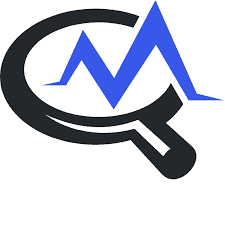
Tools like Query Monitor can help developers diagnose plugin conflicts by showing which plugins are running queries and scripts on a specific page.
Do I need a plugin if my hosting provider offers optimization?
It depends on the level of optimization your host provides. Many managed WordPress hosts offer excellent server-level caching and security firewalls, which can reduce the need for dedicated plugins for those specific tasks. However, a plugin can still provide more granular control and additional features. For example, a performance plugin like Perfmatters can optimize scripts and disable unused features, which hosting-level caching doesn’t do. An SEO plugin is almost always necessary, as hosts do not handle on-page content optimization, keyword analysis, or schema markup.
What are the most common WordPress SEO issues?
The most common WordPress SEO issues often stem from simple misconfigurations. These include: accidentally discouraging search engines from indexing the site via the “Search engine visibility” setting, using a non-SEO-friendly permalink structure, having duplicate content issues from category and tag archives, slow page speed due to unoptimized images and bloated themes, and failing to create and submit an XML sitemap to Google Search Console. A technical SEO checklist can help you systematically identify and resolve these common issues.
How do I choose the right form plugin for my business?
Choosing the right form plugin depends on your needs. For simple contact forms, a free plugin like WPForms Lite is sufficient. If you require advanced functionality, such as conditional logic, payment integrations, or multi-page forms for applications or surveys, a premium plugin like Gravity Forms or WPForms Pro is a more suitable investment. Prioritize plugins that are well-maintained, secure, and have good spam protection.
Why are backups important for a business website?
Backups are your ultimate safety net. A hack can compromise a website, a server failure, or a bad plugin update. Without a recent backup, you risk permanently losing all your content, customer data, and sales records. A reliable backup plugin, such as UpdraftPlus or Solid Backups, automates the process, storing your data securely off-site and allowing for quick restoration, which is essential for business continuity.
What is the best way to add a Table of Contents in WordPress?
The best approach is to use a dedicated plugin, such as Easy Table of Contents or the built-in TOC block from an SEO plugin like Rank Math. These tools automatically generate a TOC from your post’s headings (H2, H3, etc.). This not only enhances the user experience for long articles but also aids in SEO by creating “jump links” that can appear in Google’s search results, thereby increasing your visibility and click-through rate.
A Holistic Approach to a High-Performing Website
Navigating the world of WordPress optimization in 2025 requires more than just installing a few popular plugins. It demands a strategic, holistic approach that recognizes the deep interconnection between performance, SEO, and Security. As we’ve explored, these three pillars are not separate goals but a unified foundation for a successful online presence. A slow site will never rank well, an unoptimized site won’t be found, and an insecure site will lose the trust of both users and search engines.
The key takeaway is that there is no single “best” plugin, but rather a “best stack” for your specific needs. The choice between WP Rocket and LiteSpeed Cache depends on your hosting environment. The decision between Yoast, Rank Math, and AIOSEO hinges on your technical comfort level and business objectives. Selecting a security plugin involves striking a calculated balance between the performance impact and the level of protection your business requires.
Your journey to optimization should begin not with a plugin installation, but with an audit. Utilize tools such as Google PageSpeed Insights, Google Search Console, and a security scanner to identify your website’s most critical weaknesses. Is your LCP score holding you back? Are you failing to rank for key local terms? Are you vulnerable to brute force attacks? Answering these questions will provide a clear, data-driven path forward.
Once you’ve identified your priorities, use this guide to select the right tools for the job. Build your stack thoughtfully, test for compatibility, and commit to the ongoing process of monitoring and refinement. In the dynamic digital landscape of 2025, optimization is not a one-time fix; it is a continuous commitment to excellence that will pay dividends in traffic, conversions, and lasting brand value.
Conclusion
Achieving optimal WordPress performance is the primary driver for any successful online business, as it directly addresses Core Web Vitals and significantly impacts website speed and loading time. The solution lies in building an integrated stack of high-quality WordPress optimization plugins that address the three pillars of a high-performing WordPress website: Performance, SEO, and Security.
For speed, the backbone of a fast WordPress site is robust caching functionality provided by a dedicated WordPress caching plugin. Industry leaders like WP Rocket offer a beginner-friendly path to instant speed, featuring browser caching, cache preloading, and GZIP compression. These features can often be applied in a few clicks via the intuitive and user-friendly interface in the WordPress dashboard. Other strong contenders include WP Fastest Cache and WP Super Cache—a popular free plugin choice—while LiteSpeed Server users benefit most from the integrated LiteSpeed Cache. These popular caching plugins work by serving static HTML files, reducing server load, and minimizing HTTP requests to improve page load times.
Beyond caching, the best WordPress performance plugin focuses on asset optimization. This involves image optimization and compression (such as Smush), as well as advanced handling of CSS and JavaScript files (or JS files). Tools like Perfmatters and advanced settings in most caching plugins offer speed optimization techniques, such as lazy loading, minification, and the ability to turn off scripts on a per-page basis, which is essential for reducing bloat and improving scores in Google PageSpeed Insights.
For advanced users requiring granular control, options like W3 Total Cache offer advanced caching settings and features, including object caching. In contrast, all-in-one solutions like WP Optimize combine caching, database optimization, and image optimization into a single tool, often featuring a free version for basic needs.
In conclusion, selecting the best WordPress speed plugins and other plugins that support these functions—whether choosing a single best WordPress performance plugin or an integrated stack—is critical. While the technical details of advanced caching features and minimizing conflicts with other caching plugins can be complex, adopting this holistic approach ensures that the web page is fast, secure, and highly visible in search results, thereby maximizing your ROI and achieving market leadership.

With over 27 years of hands-on SEO expertise, starting from my early days as a CFO. Quitting that job to build a top-ranked web hosting business in 1995, I’ve mastered WordPress optimization as a precise engineering discipline. Through extensive research, high-level consulting, and developing a WordPress site that achieved over a thousand organic Google rankings—culminating in a six-figure sale—I’ve decoded Google’s algorithm over 27 years to develop wordpress engineering that transforms underperforming WordPress sites into authoritative powerhouses. Business owners frustrated by stagnant traffic, low visibility, and missed opportunities find relief as I help them deliver measurable ROI through higher rankings, increased leads, and sustainable growth. As owner of dominant city-based SEO platforms in major U.S. markets, I outperform industry gurus, empowering entrepreneurs, local businesses, agencies, and marketers via my WordPress Optimization services at wordpressoptimization.com to unlock their site’s full potential.

